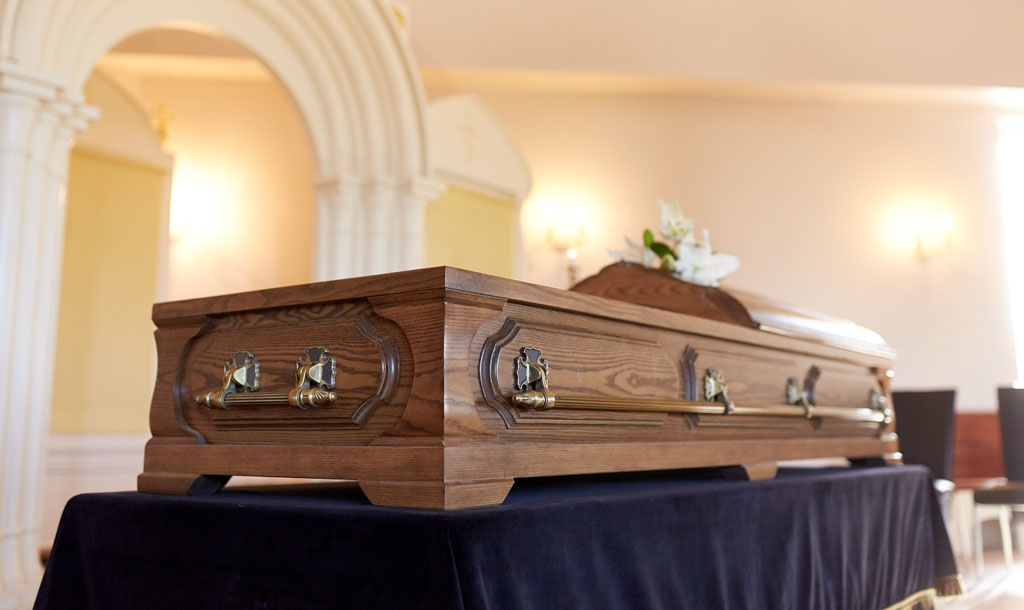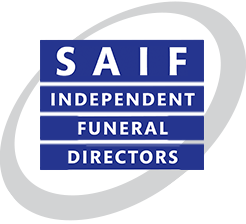How to Compose a Eulogy
Date posted November 2020
It is a great honour to be invited to write and deliver a eulogy to celebrate and honour the life of someone who has died but having said that it’s perfectly natural to feel a little daunted and apprehensive at the prospect. In this short guide we take a look at how to write and structure a eulogy that will provide a fitting tribute to the life of someone special.

What is a eulogy?
Quite simply, a eulogy is a speech given at someone’s funeral that sums up their character and their life. It provides the opportunity to pay tribute to the person who has died and is usually delivered by somebody who was close to the deceased.
Who should deliver the eulogy?
The eulogy is usually delivered by somebody who was close to the deceased and will have played an important role in their life. There are no set rules as to who this should be and quite often the person or people closest to the deceased can feel too overwhelmed to do it themselves and so often ask a respected friend or other member of the family.
How long should it be?
Your funeral director will be happy to advise you on this, and it will depend on the format and content of the individual funeral service. As a general rule of thumb, a eulogy should be five to ten minutes long, but no longer than ten. If you aim for 750-1000 words that should take you the appropriate 5-10 minutes to deliver.
How to structure a eulogy?
There are no firm rules for writing a eulogy but following a chronological order can be an effective way to add some structure. It is a good idea to talk to family and friends in order to gain some suggestions and feedback with regard to content. You can add some stories and anecdotes, which can even be light-hearted if you wish. Most of all, try to write from the heart and use the vocabulary, words and language that you would usually use. This will make your eulogy not only more personal and meaningful but will help you to deliver it fluently and more naturally at the funeral service.
What to include in a eulogy?
There is not a strict format that dictates what you should include, as every life celebrated by a eulogy is so very different. It is always worth speaking to family and friends for inspiration and you should always take care not to say anything that would offend or shock. Here are some ideas of topics you may want to consider including:
- Where and when the person was born
- Brief details of their early life
- Parents, siblings, family
- Childhood memories
- Education
- Details of early career
- How they met their spouse or partner
- Children
- Any notable achievements
- Things the person was proud of
- The character of the deceased
- Contributions to the community
- Clubs, societies, charity work
- Hobbies, interests, things they loved
- Grandchildren
- Fond memories
A eulogy usually concludes with a personal note.
Tips for speaking
Public speaking can be difficult at the best of times, and with the added fear of being overwhelmed with emotion it is hardly surprising that delivering a eulogy can be a nerve-wracking experience. Do try to remember that the people at the funeral service will be a supportive audience and will have great empathy and respect for you. Here are a few tips that might help you to prepare and beat the nerves on the day:
- Practice the eulogy so that you feel confident and prepared
- Speak slowly, there is no need to rush
- Speak more loudly than you normally would, not only will this ensure that the audience can hear you, it will also help to keep the pace steady and help to reduce the impact of your voice quivering or breaking with emotion
- If you feel emotional simply pause, take a few deep breaths and a moment to compose yourself before resuming
- Pause briefly for thought after a section, or a story
- Stand still and try not to pace or fidget
- Consider a standby in case you feel unable on the day
Writing a eulogy takes a great deal of thought, consideration and preparation. Our team of local funeral directors are always on hand to help advise and support you. For more information simply call or email us.


